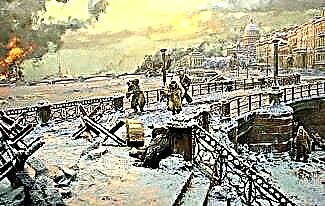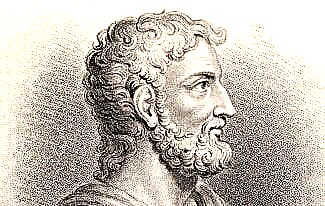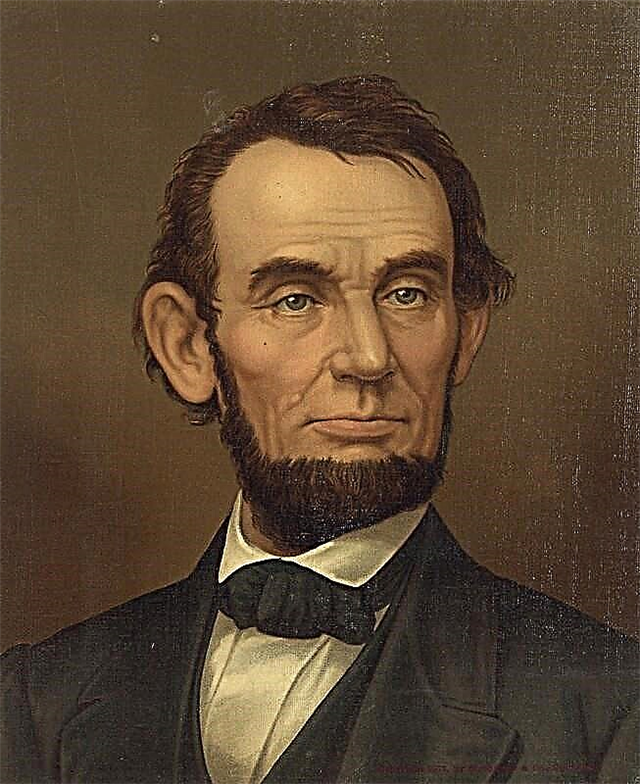It is customary to say about people like the American writer Jack London (1876-1916): “He lived a short but bright life”, while highlighting the word “bright”. They say, a person did not have a chance to calmly meet old age, but in the allotted time he took everything from life.
It is unlikely that London itself, if it were destined to live life a second time, would agree to repeat its path. An almost illegitimate child who, due to poverty, could not even finish high school, still achieved success. Already in his early years, having received a rich life experience, London, through hard work, learned to transfer his impressions to paper. He gained popularity by telling the reader not what they want to read, but what he has to tell them.
And after the author of "White Silence", "Iron Heel" and "White Fang" was forced to write at least something, so as not to once again slide into poverty. The fertility of the writer - having died at the age of 40, he managed to write 57 large-scale works and countless stories - is explained not by an abundance of ideas, but by a banal desire to make money. Not for the sake of wealth - for the sake of survival. It's amazing that, spinning like a squirrel in a wheel, London managed to create several treasures of world literature.
1. The power of the printed word Jack London could learn in infancy. His mother, Flora, was not particularly discriminating in relationships with men. At the end of the 19th century, public opinion was very categorical about young women living outside the family. This automatically put such women on a very fragile line separating free relationships from prostitution. During the period when the future Jack was conceived, Flora Wellman maintained relationships with three men, and lived with Professor William Cheney. One day, during an argument, she faked suicide. She is not the first, not the last, but the journalists learned about it. A scandal in the spirit of "a callous professor forced a young inexperienced girl in love with him to have an abortion, which made her have to shoot herself" swept through the press of all the States, forever ruining Cheney's reputation. Subsequently, he categorically denied his paternity.
2. London - the name of Flora Wellman's legal husband, whom she found when the baby Jack was eight months old. John London was a good man, honest, skilled, not afraid of any work and ready to do anything for the family. His two daughters, Jack's half-sisters, grew up the same way. An older sister named Eliza, barely seeing little Jack, took him under her care and spent her whole life with him. In general, little London was extremely lucky with people. With one exception - his own mother. Flora possessed irrepressible energy. She constantly came up with new adventures, the collapse of which put the family on the brink of survival. And her maternal love was expressed when Eliza and Jack became seriously ill with diphtheria. Flora was keenly interested in whether it would be possible to bury the little ones in one coffin - that is cheaper.
3. As you know, Jack London, becoming a writer and journalist, easily wrote a thousand words every morning - a monstrous volume for any writer. He himself humorously explained his superpower as a prank at school. During the choir singing, he was silent, and when the teacher noticed this, he accused her of poor singing. She, they say, wants to spoil his voice too. A natural visit to the director ended with permission to replace the 15-minute daily singing in the choir with a piece. It seemed that the classes were not the same in time, but London learned to finish the composition before the end of the choir lesson, getting a fraction of free time.
4. Jack London's popularity among contemporaries and descendants is comparable to the popularity of the first rock stars. Canadian Richard North, who idolized London, once heard that on the wall of one of the huts on Henderson Creek, there is an inscription carved by his idol. North first spent several years looking for the postman Jack Mackenzie, who saw this inscription. He remembered that he saw the inscription, but it was more than 20 years ago. This confirmation was enough for North. He knew that London was developing Site 54 on Henderson Creek. Having traveled around the few surviving huts on dog sleds, the restless Canadian celebrated success: on the wall of one of them was carved: "Jack London, prospector, author, January 27, 1897". Those close to London and a graphological examination confirmed the authenticity of the inscription. The hut was dismantled, and using its material, two copies were built for fans of the writer in the United States and Canada.
5. In 1904, London could well have been shot by the Japanese military. He arrived in Japan as a war correspondent. However, the Japanese were not eager to let foreigners on the front lines. Jack made his way to Korea on his own, but was forced to stay in a hotel - he was never allowed to go to the front. As a result, he got involved in an argument between his servant and a colleague and decently beat someone else's servant. The war zone, the annoying foreigner is rowdy ... Other journalists felt that something was wrong. One of them even repulsed a telegram to President Roosevelt (Theodore) himself. Fortunately, even before receiving an answer, the journalists did not waste time, and quickly pushed London onto a ship leaving Japan.
6. The second time London went to war in 1914. Once again, relations between the United States and Mexico have worsened. Washington decided to take the port of Vera Cruz from its southern neighbor. Jack London traveled to Mexico as special correspondent for Collers magazine ($ 1,100 a week and reimbursement of all expenses). However, something in the higher echelons of power has stalled. The military operation was canceled. London had to be content with a big win at poker (he beat fellow journalists) and suffered from dysentery. In the few materials he managed to send to the magazine, London described the courage of American soldiers.
7. At the beginning of its literary journey, London encouraged itself with the phrase “10 dollars per thousand” for him at that time. This meant the amount that the magazines allegedly paid authors for a manuscript - $ 10 per thousand words. Jack sent several of his works, each of which had at least 20 thousand words, to different magazines, and mentally began to grow rich. His disappointment was great when in the only answer that came, there was an agreement to print the whole story for $ 5! In the dirtiest job, London would have received much more in the time spent on the story. The literary career of the aspiring author was saved by a letter from the Black Cat magazine that came the same day, to which London sent a story of 40 thousand words. In the letter, he was offered 40 dollars for publishing the story with one condition - to cut it in half. But that was $ 20 per thousand words!

8. The magnificent story "White Silence" and another one, "For those who are on the way", London sold to the magazine "Transatlantic Weekly" for 12.5 dollars, but they did not pay him for a long time. The writer himself came to the editorial office. Apparently, strong London made an impression on the editor and his colleague - the entire staff of the magazine. They turned out their pockets and gave everything to London. Literary tycoons for two had a sum of $ 5 in change. But those five dollars were lucky. London's earnings began to rise. After a while, a magazine with almost the same name - "Atlantic Monthly" - paid London as much as $ 120 for the story.
9.Financially, the entire literary life of London has been the endless race of Achilles and the tortoise. Earning dollars, he spent tens, earning hundreds - spending thousands, earning thousands, sinking deeper into debt. London worked a hell of a lot, he was paid very well, and at the same time, the writer's accounts never had the slightest decent amount.
10. London and his wife Charmian's voyage across the Pacific on the Snark yacht to collect new material was successful - five books and many smaller works in two years. However, the maintenance of the yacht and the crew, plus the overhead costs, made the excellent venture negative, despite the fact that the publishers paid generously and food in the tropics was cheap.
11. Talking about politics, London almost always called itself a socialist. All his public appearances invariably evoked delight in the left circles and hatred in the right. However, socialism was not the conviction of the writer, but the call of the heart, an attempt to once and for all establish justice on Earth, nothing more. Socialists have often criticized London for this narrow-mindedness. And when the writer became rich, their causticity went beyond all boundaries.
12. Writing as a whole brought London about a million dollars - a fabulous sum then - but he had nothing left to his soul except debts and a mortgaged ranch. And the purchase of this ranch well illustrates the writer's ability to shop. The ranch sold for $ 7,000. This price was set with the expectation that the new owner would breed fish in the ponds. The rancher was ready to sell it to London for 5 thousand. The owner, fearing of offending the writer, began to gently lead him to change the price. London decided that they wanted to increase the price, did not listen to it, and shouted that the price had been agreed, period! The owner had to take 7 thousand from him. At the same time, the writer did not have cash at all, he had to borrow it.
13. In terms of heart and spiritual affection, there were four women in Jack London's life. As a young man, he was in love with Mabel Applegarth. The girl reciprocated him, but her mother was able to scare away even a saint from her daughter. Tormented by the inability to connect with his beloved, London met Bessie Maddern. Soon - in 1900 - they got married, although at first there was no smell of love. They just felt good together. By Bessie's own admission, love came to her later than marriage. Charmian Kittredge became the second official wife of the writer in 1904, with whom the writer spent all the remaining years. Anna Strunskaya also had a great influence on London. With this girl, who was from Russia, London wrote a book about love "Correspondence of Campton and Weiss".

14. In the summer of 1902 London went to South Africa in transit through London. The trip did not work out, but the writer did not waste time. He bought shabby clothes and went to the East End to explore the London bottom. There he spent three months and wrote the book "People of the Abyss", hiding from time to time in a room rented from a private investigator. In the image of a vagabond from the East End, he returned to New York. The attitude of both British colleagues and American friends to such an act is shown by the phrase of one of the people who met, who immediately noticed: there was no vest at all in London, and the suspenders were replaced by a leather belt - from the point of view of the average American, a completely downcast person.
15. Invisible from the outside, but very important role in the last decade of the life of London was played by the Japanese Nakata. The writer hired him as a cabin boy during a two-year trip on the Snark. The miniature Japanese was somewhat like young London: he absorbed knowledge and skills like a sponge. He quickly mastered at first the simple duties of a servant, then became a personal assistant to the writer, and when London bought the estate, he actually began to manage the house. At the same time, Nakata did a lot of technical work from sharpening pencils and purchasing paper to finding the right books, brochures and newspaper articles. Later, Nakata, whom London treated like a son, became a dentist with the financial support of the writer.
16. London was seriously engaged in agriculture. In a short time, he became a specialist and understood all aspects of this industry, from the circulation of crops to the state of affairs in the American market. He improved livestock breeds, fertilized depleted lands, cleared arable lands overgrown with bushes. Improved cowsheds, silos were built, and irrigation systems were developed. At the same time, workers received shelter, a table and a salary for an eight-hour working day. This, of course, required money. Losses from agriculture at times reached $ 50,000 a month.
17. London's relationship with Sinclair Lewis was curious, in the heyday of London's popularity as a poor aspiring writer. In order to earn a little money, Lewis sent several plots to London for future stories. He wanted to sell the plots for $ 7.5. London chose two subjects and in good faith sent Lewis $ 15, with which he bought himself a coat. Subsequently, London sometimes fell into a creative crisis because of the need to write quickly and a lot, bought from Lewis the plots of the stories "The Prodigal Father", "A Woman Who Gave Her Soul to a Man" and "Boxer in a Tailcoat" for $ 5. The plot of "Mr. Cincinnatus" was gone for 10. Still later, based on the plots of Lewis, the story "When the whole world was young" and the story "The Fierce Beast" were written. London's latest acquisition was the plot of the Murder Bureau novel. The writer did not know how to approach an interesting plot, and wrote about it to Lewis. He sent his venerable colleague a whole outline of the novel for free. Alas, London did not have time to finish it.
18. The last days of Jack London's life can be counted from August 18, 1913. On this day, the house, which he had been building for more than three years, burned down a couple of weeks before it could be moved into. The Wolf House, as London called it, was a real palace. The total area of its premises was 1,400 square meters. m. London spent $ 80,000 on the construction of the Wolf House. In monetary terms alone, without taking into account the significantly increased prices for building materials and increased salaries for builders, this is about $ 2.5 million. Only one announcement of this amount drew merciless criticism - a writer who calls himself a socialist, built himself a royal palace. After the fire in London, something seemed to break. He continued to work, but all of his illnesses worsened at once, and he no longer enjoyed life.
19. November 21, 1916 Jack London finished packing - he was going to go to New York. Until late in the evening, he talked with his sister Eliza, discussing further plans for raising agriculture on the ranch. On the morning of November 22, Eliza was awakened by the servants - Jack was lying in bed unconscious. On the bedside table were bottles of morphine (London relieved pain from uremia) and atropine. Most eloquent were the notes from a notebook with calculations of the lethal dose of poisons. Doctors took all possible rescue measures at that time, but to no avail. At 19 o'clock 40-year-old Jack London finished his rough earthly journey.
20. In Emerville, a suburb of Oakland, where he was born and in the vicinity of which he spent most of his life, his admirers planted an oak tree in 1917. This tree, planted in the middle of the square, is still growing. London fans argue that it was from the place where the oak was planted that Jack London delivered one of his speeches against capitalism. After this speech, he was arrested for the first time for political reasons, although according to police documents, he was detained for disturbing public order.









